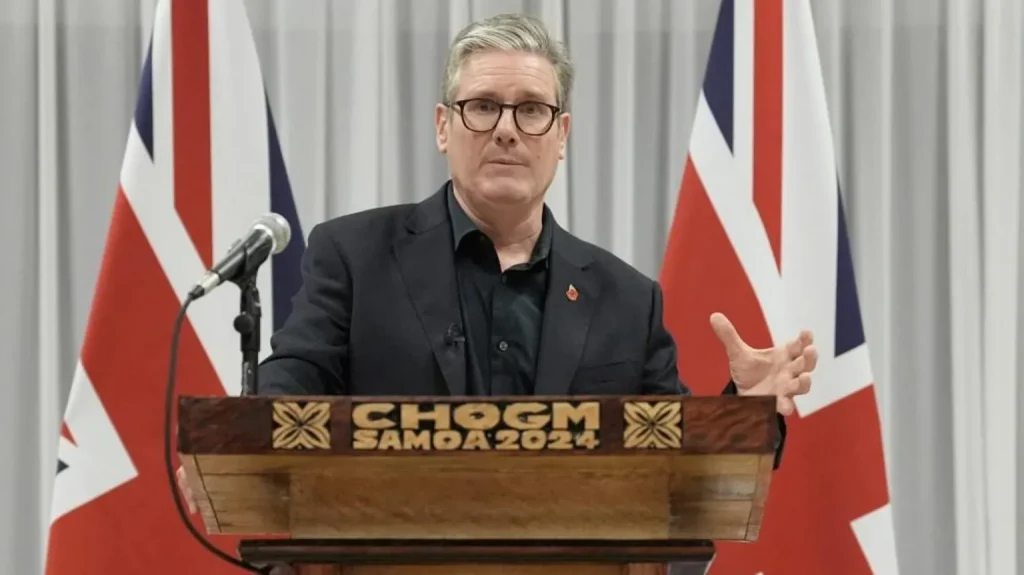
Commonwealth leaders have reached a consensus that “the time has come” to initiate discussions on reparations for the transatlantic slave trade, marking a significant milestone in calls for addressing the painful legacy of slavery.
This decision comes despite prior indications from the UK that it sought to avoid the subject at the two-day Commonwealth summit in Samoa.
A joint document signed by 56 heads of government, including UK Prime Minister Sir Keir Starmer, acknowledges the need for “discussions on reparatory justice” for the “abhorrent” slave trade. The statement calls for a “meaningful, truthful, and respectful conversation” on the matter.
While Sir Keir reiterated the UK’s stance against financial reparations, he noted that the summit yielded a positive dialogue on various issues, including resilience and climate action. “The dominant theme of the two days has been resilience and climate,” he said, describing the reparations mention as “one paragraph in 20-something paragraphs” in the broader communique. He added, “None of the discussions have been about money. Our position is very, very clear in relation to that.”
The prime minister also addressed reports of growing pressure for the UK to apologize and compensate for its role in the slave trade. Downing Street sources maintained that the UK’s position “is not changing.” Chancellor Rachel Reeves also recently confirmed that the UK would not pay financial reparations.
However, Sir Keir appeared open to further dialogue, mentioning that “the next opportunity to look at this” could arise at the UK-Caribbean Forum in March, which will take place in London. Frederick Mitchell, the Bahamian Foreign Minister, expressed hope for a “comprehensive report” on reparatory justice at that forum, telling BBC Radio 4, “Behind the language is an attempt to go in a particular direction,” and adding his expectation that the UK would eventually provide financial reparations to Caribbean nations.
While reparations could include financial payments, other forms—such as formal apologies, educational initiatives, or public health support—are also being considered. Diplomatic sources suggest reparatory justice may become a central agenda item at the next Commonwealth summit, slated for two years from now.
For those advocating reparations, the summit’s communique signals a willingness to confront difficult historical questions. As one diplomat observed, “Half the art of diplomacy is keeping the conversation going, even if immediate change seems unlikely.”








